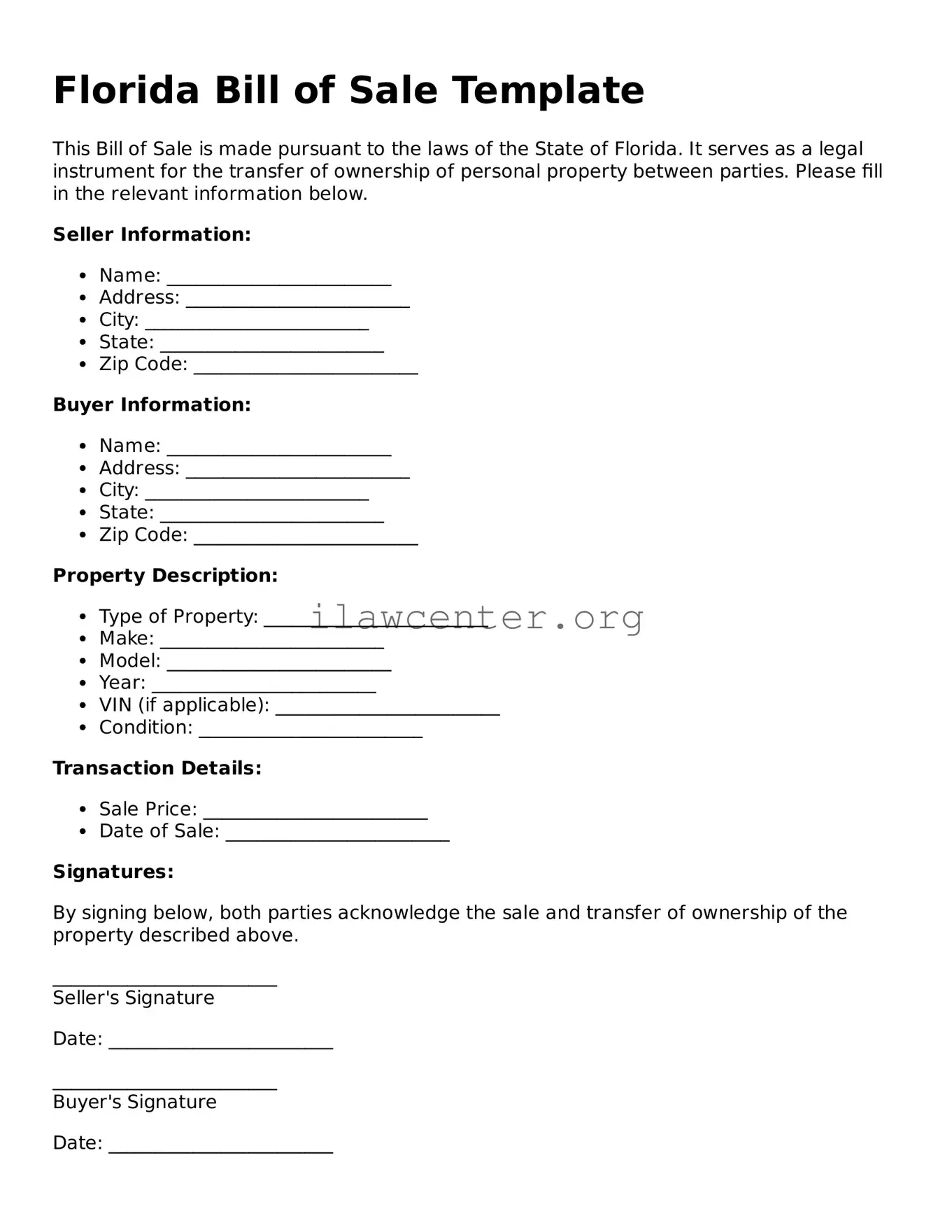Instructions on Utilizing Florida Bill of Sale
Completing the Florida Bill of Sale form is a straightforward process that ensures a clear transfer of ownership between the seller and buyer. This form serves as a vital record, documenting important details of the transaction. Ensuring that you have all necessary information on hand will make the process smoother.
- Start with the title of the form: Typically, it will read “Bill of Sale.” Ensure this is clear at the top of the document.
- Fill in the date of the transaction: Indicate the date when the sale is taking place.
- Insert the seller's information: Provide the full name and address of the seller. This identifies who is transferring ownership.
- Enter the buyer's details: Include the buyer's full name and address to verify who is receiving ownership.
- Describe the item being sold: Clearly state what item is being sold. This may include make, model, year, and any identifying numbers like a VIN for vehicles.
- State the sale price: Write down the amount being paid for the item. This specifies the agreed payment for the transaction.
- Include any additional terms: If there are specific conditions related to the sale, such as warranties or conditions of sale, detail these here.
- Provide space for signatures: The seller and buyer should sign the document to confirm the agreement. Include lines for printed names and signatures.
After filling out the form, both parties should keep a copy. This ensures that each retains a record of the transaction for future reference.
